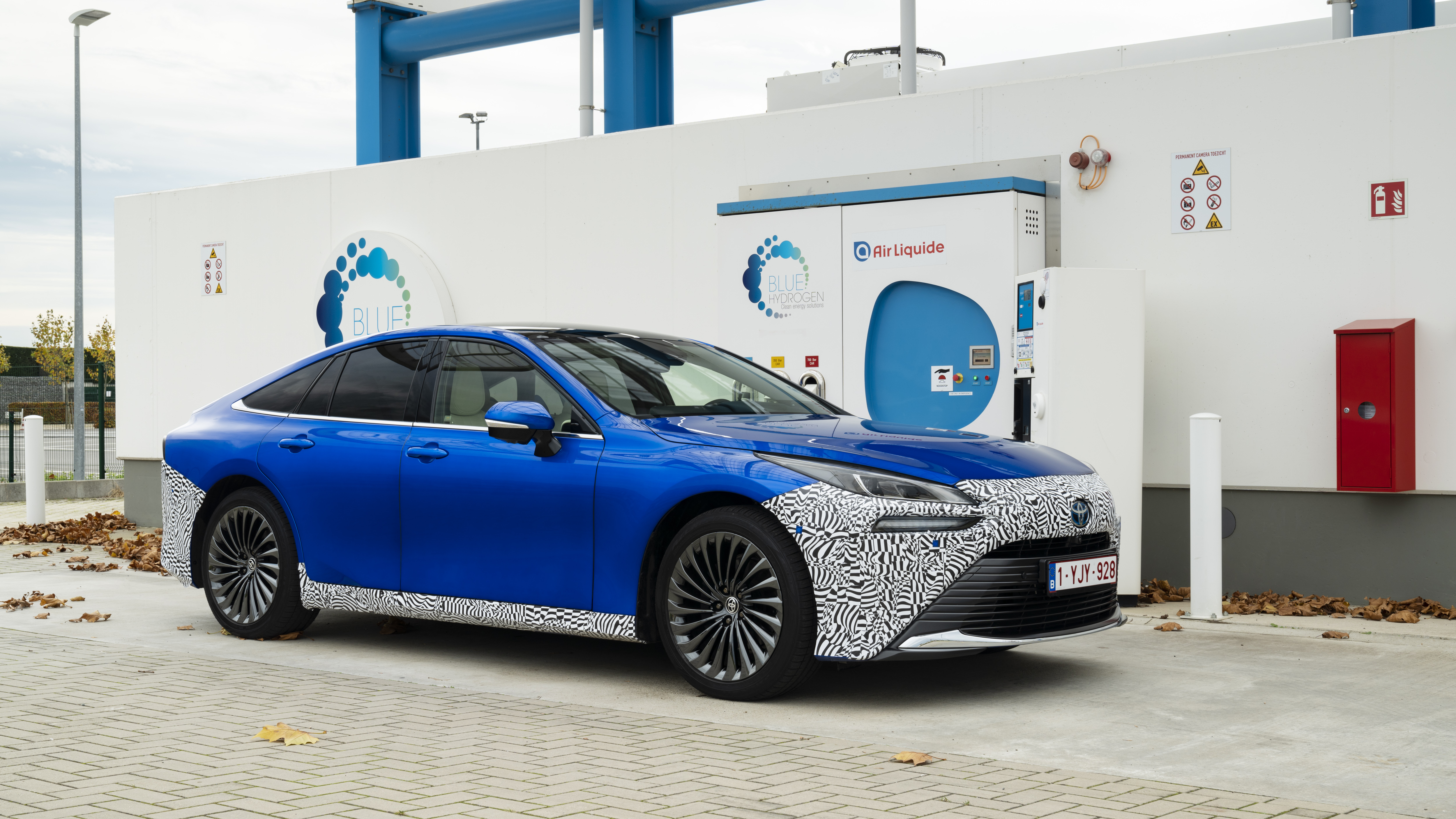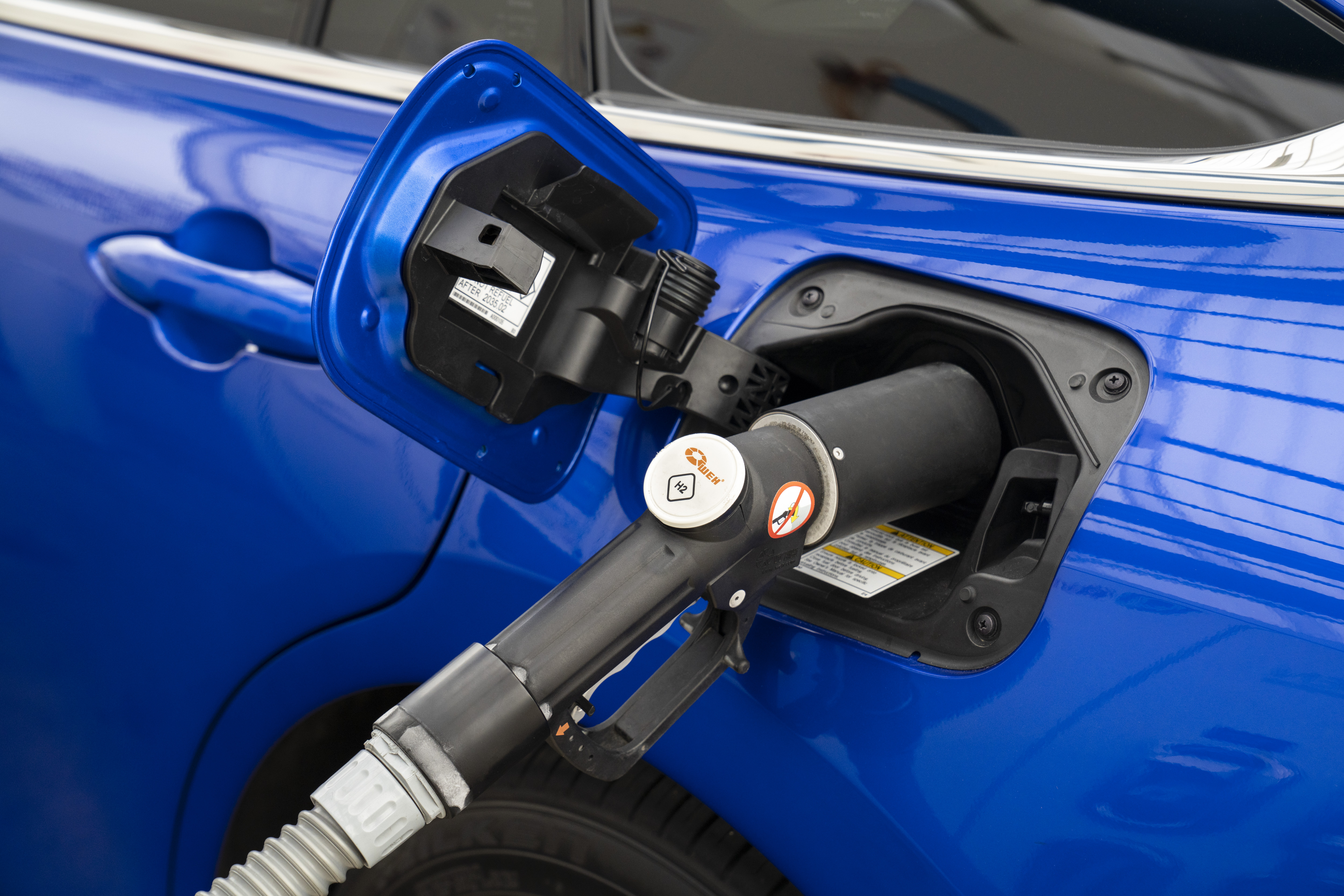An electrica.live guide to...Hydrogen Cars

Hydrogen cars are not a new idea; in fact they’ve been around for many years. That the technology works is a well-established fact, and there are countries – Japan, primarily – that have a usable hydrogen infrastructure that supports the use of fuel cell vehicles.
But in Europe hydrogen fuel cells are still an outlandish, futuristic prospect that we know very little about. You can read out review of the 2021 Toyota Mirai hydrogen fuel cell car (HEV) here, or keep reading to find out the basics on why hydrogen is likely to be a very big part of our transport infrastructure in the future...
How does a hydrogen car work?
The first thing to know is that a hydrogen car is still an electric vehicle; it’s just that the electric motor is powered by that hydrogen fuel cell stack rather than by batteries that you find in ‘normal’ normal battery EVs (BEVs). Hydrogen gas is stored at high pressure in the car’s tanks, and is then fed to the fuel cells, which mix it with plain old fresh air. This chemical creates the electricity that drives the car’s motor, and the only other bi-product is water, which drips from the car’s tailpipe. Other than that, there are no tailpipe emissions from a hydrogen car.
How do you refuel a hydrogen car?
You refuel a HEV in much the same way that you fuel a petrol or diesel car. The hydrogen pump has a hose and nozzle attached, which you put into the car’s fuel filler. Then you lock the nozzle onto the car, which makes sure that the nozzle is sealed securely, and allows the pressure to be equalised in the fuel hose and the car’s tanks.
Hydrogen is stored and pumped at extremely high pressure; the three fuel tanks in the Mirai are pressurised to 700 bar (for some context, that’s roughly 300 times the air pressure in your car’s tyres). That’s also why the hydrogen fuelling station makes some whooshing and banging noises that might be rather alarming if you’re not expecting it. It all takes just a few minutes for a full refill – one of the great benefits of hydrogen EVs over battery EVs.

Where do you refuel a hydrogen car?
Good question. At the moment there are only a handful of hydrogen refuelling stations in the UK.
Are hydrogen cars safe?
Yes, they are. Hydrogen is complicated to store and transport safely, and let’s face it – the Hindenburg disaster has given hydrogen a bad reputation ever since. But the technology has come a long way and, of course, hydrogen cars are tested to the same crash safety standards as electric and petrol cars. Don’t forget that many trains and buses already run on hydrogen very safely around the world, and Japan also already has a hydrogen network on its roads, which has proven safe to use.
The problem is that – while hydrogen can be transported and stored safely either as a gas or liquid – it’s complicated and expensive to do. Herein lies one of the main reasons why hydrogen power hasn’t taken off in most markets.
Is a hydrogen fuel cell car greener than a battery electric car?
That really depends on where you get the hydrogen from, and this is the other chief complication with HEVs Currently, the method used to produce and transport hydrogen in large quantities accounts for a lot of CO2. However, it is possible to produce hydrogen using solar-powered stations, which can potentially also allow for production of hydrogen on site at filling stations – meaning a virtually carbon zero fuel production process. It’s doing this in the quantities necessary to make enough hydrogen for fuel lorries, cars and more, that’s the difficult bit. If we can manage that, then hydrogen fuel cell vehicles would be greener than a ‘normal’ EV.
How much does it cost to fuel a hydrogen fuel cell car?
Currently, in the UK hydrogen is more expensive than electricity but roughly on a par with petrol. You’ll pay a similar amount per mile to fuel a hydrogen car as you will to fuel a petrol car doing around 40mpg. Hydrogen is just as susceptible to price changes as petrol or diesel, so prices will fluctuate.
Are hydrogen cars likely to become common in the UK?
They’re a long way off being common, but it is likely that hydrogen fuel cells will become a big part of our transport network over coming years. That will most likely happen in heavy goods vehicles, farm machinery, buses and even shipping before it becomes a routine option in passenger vehicles. The distances, loads and economies involved in these industries makes the longer range and quicker refuelling offered by hydrogen electric powertrains a more plausible solution than battery electric.